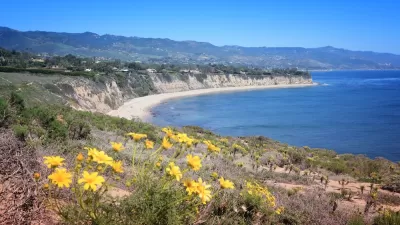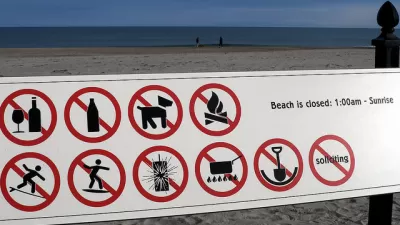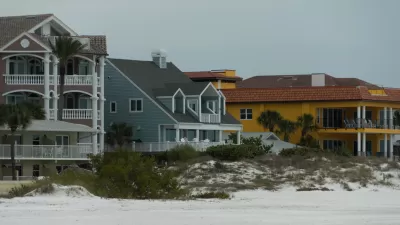It's harder to access the ocean in Massachusetts than any other coastal state in the country, but that could soon change.

"Thanks to a well-meaning ordinance approved by the king of England in the 1600s, modern Massachusetts (as well as Maine, due to the fact that it was once part of Massachusetts) today has what are considered the most restrictive ocean access laws in the country," according to a paywalled article by Billy Baker. The law was one of the first to fracture the Public Trust Doctrine first expressed in Roman law and passed down through millennia until it came to Massachusetts.
That could change soon, however, after state legislators proposed a new law that hinges on a single word: recreation. Baker explains more:
Under the Massachusetts interpretation of the Public Trust Doctrine, a state law known as Chapter 91, the public can access “private tidelands’’ for only three purposes: “fishing, fowling, and navigation.’’ When it was formalized in 1866, Chapter 91 was meant to protect how the public customarily used the sea.
State Senator Julian Cyr and State Representative Dylan Fernandes are proposing that the Chapter 91 be rewritten to add recreation to the "fishing, fowling, and navigation" protections in Chapter 91, as Baker explains in the article.
Experts and stakeholders on either side of the issue present their case in the remainder of the article. One key consideration in the debate is climate change, and the public assistance some coastal landowners, who might be resistant to the proposed law, will require to deal with the effects of sea-level rise.
FULL STORY: Here’s the word: ‘Recreation’ could open up beach access

Alabama: Trump Terminates Settlements for Black Communities Harmed By Raw Sewage
Trump deemed the landmark civil rights agreement “illegal DEI and environmental justice policy.”

Planetizen Federal Action Tracker
A weekly monitor of how Trump’s orders and actions are impacting planners and planning in America.

Why Should We Subsidize Public Transportation?
Many public transit agencies face financial stress due to rising costs, declining fare revenue, and declining subsidies. Transit advocates must provide a strong business case for increasing public transit funding.

Understanding Road Diets
An explainer from Momentum highlights the advantages of reducing vehicle lanes in favor of more bike, transit, and pedestrian infrastructure.

New California Law Regulates Warehouse Pollution
A new law tightens building and emissions regulations for large distribution warehouses to mitigate air pollution and traffic in surrounding communities.

Phoenix Announces Opening Date for Light Rail Extension
The South Central extension will connect South Phoenix to downtown and other major hubs starting on June 7.
Urban Design for Planners 1: Software Tools
This six-course series explores essential urban design concepts using open source software and equips planners with the tools they need to participate fully in the urban design process.
Planning for Universal Design
Learn the tools for implementing Universal Design in planning regulations.
Caltrans
Smith Gee Studio
Institute for Housing and Urban Development Studies (IHS)
City of Grandview
Harvard GSD Executive Education
Toledo-Lucas County Plan Commissions
Salt Lake City
NYU Wagner Graduate School of Public Service





























